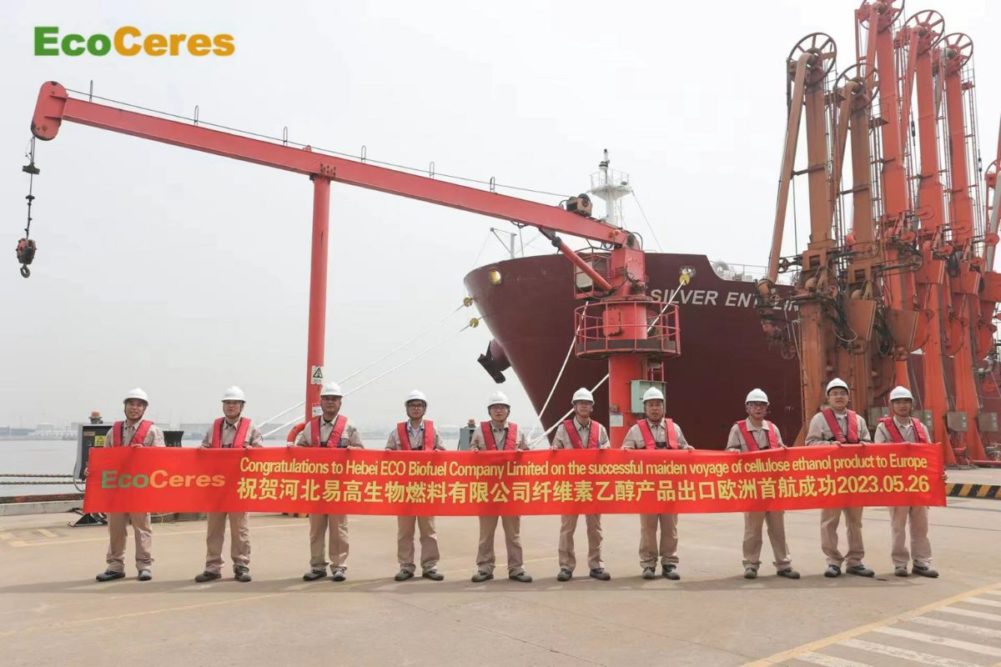HONG KONG — EcoCeres, Inc., has made its first shipment of 100% agricultural waste-produced cellulosic ethanol to European markets following the commissioning of another facility in China for the Hong Kong-based biorefinery company.
The shipment consists of 850 tonnes of cellulosic ethanol made from agricultural waste, primarily corncobs, which reduces greenhouse gas emissions by over 80% compared to traditional fossil fuels and is in alignment with the European Union’s Renewable Energy Directive as an advanced biofuel.
“As one of the few companies globally with the capacity to produce cellulosic ethanol at an industrial scale, EcoCeres is well-positioned to meet the growing demand for advanced biofuels,” said Philip Siu, co-founder and chief executive officer of EcoCeres. “This shipment of cellulosic ethanol signifies EcoCeres’ breakthrough success to reverse the lignocellulosic agricultural waste back to its original sugar forms, paving the way for sustainable aviation fuel to be produced through further alcohol-to-jet conversion.”
EcoCeres produces a range of renewable biofuels, now covering sustainable aviation fuel (SAF), hydro-treated vegetable oil (HVO) and cellulosic ethanol. EcoCeres uses its in-house developed technology and own biomass refinery platform to meet the growing market demand and regulatory requirements for renewable transportation fuels.
EcoCeres developed a proprietary technology to convert agricultural waste, such as corncob and straw, into useful waste-based biofuels and biopolymers that drive the energy and material transitions for attaining carbon neutrality.
“Our innovative approach to producing cellulosic ethanol entirely from agricultural waste not only supports a sustainable future, but also strengthens our position in the renewable fuels market,” said Dr. Bin Xu, chief operating officer of Agricultural Waste Business at EcoCeres. “Our unique differentiator is being able to effectively separate hemicellulose, cellulose and lignin, using each in high-value processes or end products, economically and sustainably.”






